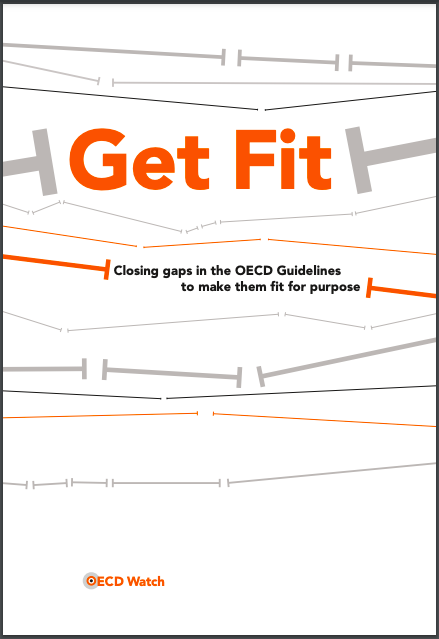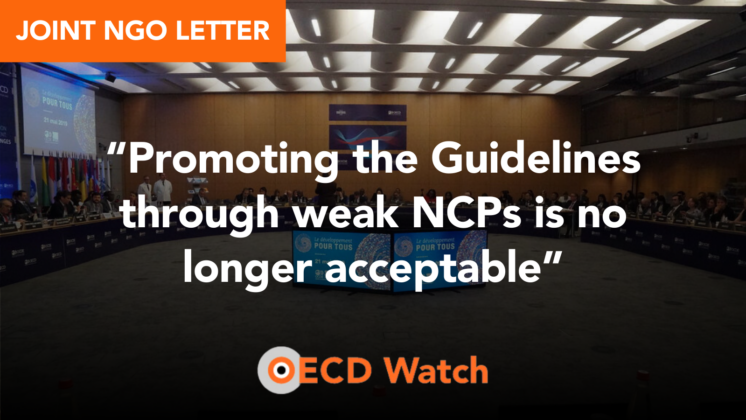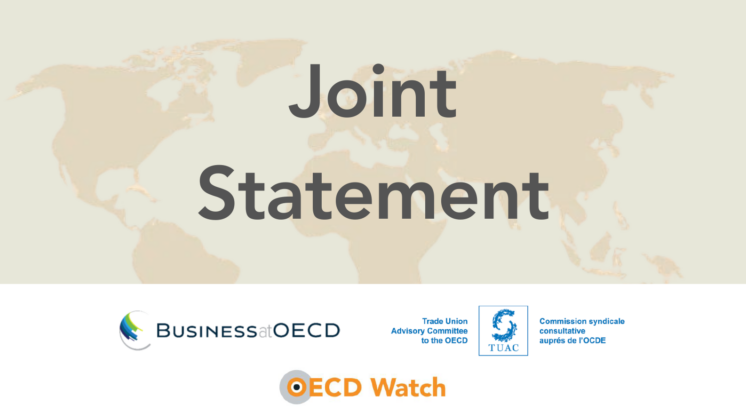In “Get Fit: Closing gaps in the OECD Guidelines to make them fit for purpose,” OECD Watch argues for a revision of the Guidelines to close problematic gaps in both standards for multinational enterprises and expectations for the structures, promotional activities, and complaint-handling procedures of National Contact Points (NCPs).
Get Fit: Closing gaps in the OECD Guidelines to make them fit for purpose
From the perspective of civil society, the OECD Guidelines have three simple purposes:
1. To provide a comprehensive, up-to-date, and practical set of standards on responsible business conduct (RBC) for Multinational Enterprises (MNEs).
2. To facilitate access to remedy for victims of adverse business impacts via the NCP complaint mechanism.
3. Through providing progressive norms for MNEs and a meaningful path to remedy for victims, to signal to the world the importance of advancing responsible business practices.
At present, the OECD Guidelines are failing to meet those purposes.
The standards they set for MNEs are outdated and incomplete, missing major and pressing societal issues such as climate change, digitalization, tax avoidance, land rights, gender issues, and security for human rights defenders. Further, the expectations they set for NCPs are inadequate, yielding a system of grievance mechanisms that are widely divergent in their structures, promotional activities, and complaint-handling procedures – and thus their accountability, impartiality, and effectiveness in facilitating remedy and encouraging good business conduct. If left unaddressed, these gaps signal a concerning lack of commitment by OECD governments to advancing a progressive agenda on business and human rights.
Several aspects of the Guidelines justify civil society and governments taking action to ensure they remain up-to-date and effective. The Guidelines have various innate strengths, such as broad applicability to diverse sectors, regions, company types, and environmental and social issues. They are widely consulted by civil society, business, and governments alike as a leading norm on RBC. For better or worse, they offer the only path to potential remedy for many victims of corporate impacts. And critically, they are increasingly being used to guide or inform development of national and regional binding laws on corporate accountability.
The OECD Working Party on Responsible Business Conduct is undertaking a stocktaking exercise to identify whether the Guidelines are fit for purpose and whether there are gaps in their MNE standards or NCP expectations. On 17 June 2021, the OECD is launching a public consultation on gaps in the Guidelines.
Over the past two years and particularly between November 2020 and February 2021 in parallel with the OECD’s own stocktaking, OECD Watch has held consultations with civil society to identify the key gaps in the Guidelines the OECD should address.
Drawing on this insight from global civil society groups and OECD Watch’s Complaint Database and NCP Evaluations, “Get Fit” discusses leading challenges in the field of business and human rights, identifies gaps in the Guidelines that make them unable to address those challenges, and suggests practical revisions that will ensure the Guidelines remain fit for purpose as the leading, consolidated global standard on RBC.
OECD Watch submission to Guidelines stocktaking
Please also see OECD Watch’s submission commenting on the first draft of the OECD’s stocktaking report.















